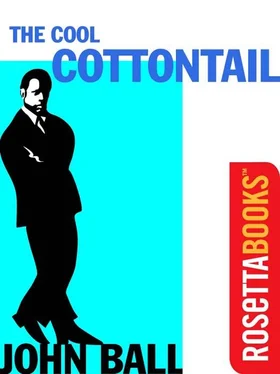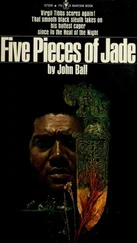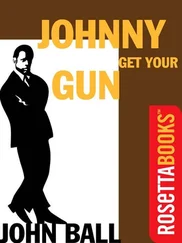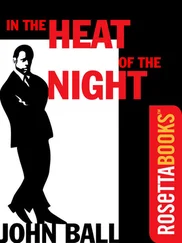John Ball - The Cool Cottontail
Здесь есть возможность читать онлайн «John Ball - The Cool Cottontail» весь текст электронной книги совершенно бесплатно (целиком полную версию без сокращений). В некоторых случаях можно слушать аудио, скачать через торрент в формате fb2 и присутствует краткое содержание. Год выпуска: 1966, ISBN: 1966, Издательство: RosettaBooks, Жанр: Полицейский детектив, на английском языке. Описание произведения, (предисловие) а так же отзывы посетителей доступны на портале библиотеки ЛибКат.
- Название:The Cool Cottontail
- Автор:
- Издательство:RosettaBooks
- Жанр:
- Год:1966
- ISBN:978-0-7953-1757-6
- Рейтинг книги:5 / 5. Голосов: 1
-
Избранное:Добавить в избранное
- Отзывы:
-
Ваша оценка:
- 100
- 1
- 2
- 3
- 4
- 5
The Cool Cottontail: краткое содержание, описание и аннотация
Предлагаем к чтению аннотацию, описание, краткое содержание или предисловие (зависит от того, что написал сам автор книги «The Cool Cottontail»). Если вы не нашли необходимую информацию о книге — напишите в комментариях, мы постараемся отыскать её.
The Cool Cottontail — читать онлайн бесплатно полную книгу (весь текст) целиком
Ниже представлен текст книги, разбитый по страницам. Система сохранения места последней прочитанной страницы, позволяет с удобством читать онлайн бесплатно книгу «The Cool Cottontail», без необходимости каждый раз заново искать на чём Вы остановились. Поставьте закладку, и сможете в любой момент перейти на страницу, на которой закончили чтение.
Интервал:
Закладка:
“Some of my friends took him away in an ambulance,” Tibbs answered.
“Oh.” Carole was disappointed.
Carefully Tibbs slipped his tie under his collar and knotted it.
“Why did you do that?” Carole asked.
“So that I will look nice,” Tibbs answered. “At least as nice as I can.”
“I liked you better the other way.”
He laughed and looked at her. “Is Linda your sister?” he asked.
“Yes.”
“Are there any more sisters?”
“No.”
“That’s good,” Tibbs said a little grimly.
Carole studied him. “We have a very nice mommy,” she volunteered.
“I’m sure of that. Now I have to talk to your father. Would you like to show me the way?”
Emily Nunn had dressed in a sleeveless yellow Capri outfit, as she expected there would be a deluge of policemen in and out most of the day. Whenever non-nudist visitors were expected at the lodge, she dressed as a matter of principle, though if they came unexpectedly, she felt that since they knew they were in a nudist park any problems of conforming were up to them.
Virgil Tibbs’ first impression of her when he followed Carole into the kitchen was of a moderately tall, astonishingly youthful-looking woman, and one completely in possession of herself.
“Good morning, Mr. Tibbs,” she greeted him. “I do hope Linda didn’t annoy you too much this morning. I was quite upset when I learned she had insisted on staying down there with you.”
“Not at all, Mrs. Nunn,” Tibbs answered politely. “She’s a very interesting young lady. And Carole, too, of course.”
“How nice of you to say so.” Without asking she set a place for him and poured out a cup of coffee. “I know you want to talk to Forrest-he’ll be right down.” As she spoke, her husband appeared in the doorway.
For the better part of an hour Tibbs questioned them carefully about the night before, about the usual procedures for gaining access to the lodge grounds, about other possible methods of entry, and about the attitudes of the surrounding community concerning the nudist resort. Linda’s suggestion that the body had been put into the pool either as a gruesome prank or to embarrass the park had also occurred to him and he gave it careful attention. In his own mind he doubted it, but that didn’t rule it out.
“There are, of course, a good many people who don’t like the nudist idea simply because it’s different,” Forrest told him candidly. “They don’t trouble us much. Our community relations are very good and I’m at a loss to suggest anyone who would do such a thing to us. It’s pretty hard to imagine that someone would steal a body just to plant it on our property.”
“Frankly, I can’t see that either. My present thinking is that the body was put into your pool for some entirely different reason.”
“I sincerely hope so,” Forrest said.
Tibbs also drew a complete blank on identification of the dead man by anyone at the lodge. Emily had not seen the body, but Forrest, Linda, and George all swore they had never seen the man before and would have remembered him if they had. They could offer no suggestion about who he might have been.
Finally Tibbs closed his notebook and said, “I understand that I’m being assigned to this case and will be following it up. That means I may have to bother you people several times more before it is finished. At the moment I can’t think of any reason why, but it usually works out that way.”
Forrest nodded. “We understand. Come any time you wish and bring anyone with you you might need. We’re almost always here.”
Tibbs rose. “Then I believe that’s all for the moment. Let me caution you-if you find anything, anything at all, around the grounds that doesn’t belong there or that might possibly have a bearing on this matter, please call me immediately.” He laid a calling card on the table.
At that moment the warning bell rang indicating that a car had entered the driveway. Tibbs glanced at the clock. It was ten minutes to eleven.
Linda got quickly to her feet. “They must have taken the chain down,” she remarked, and disappeared out the doorway.
“If you have no objection, we’re going to do a clean-up job on the pool,” Forrest said. “I know the body didn’t contaminate the water, but some of our members might be disturbed by the idea. I’m going to drain the pool, wash it down, and clean the deck.” He followed Tibbs out the doorway.
“Go ahead, do whatever you consider necessary.”
As the two men went slowly toward the parking lot, the beauty of the day completely denied the thing that had been discovered that morning. Walking along the sun-bright grass, they met Linda escorting a middle-aged couple, a teen-aged son, and two younger daughters. Tibbs detoured just enough to avoid the need for introductions. When he was well past, the man in Linda’s party stopped and turned.
“I guess they don’t care who they let in here,” he declared with offensive loudness in his voice.
“I’m sorry,” Forrest said quietly.
“I’m afraid I may have cost you some business,” Tibbs countered. “When you go back, please explain that I’m not a member. Tell them the county sent me to inspect the swimming pool.”
Forrest shook his head. “I don’t think I will. Along with known Communists, people with abnormal sex ideas, and troublemakers generally, we won’t take bigots. Too many of our members are Jewish or Nisei.”
They reached the parking lot and Tibbs climbed behind the wheel of his car. “I’ll keep you posted as much as I can,” he said. “Be sure and call me immediately if anything breaks here.”
“I will,” Forrest promised.
Tibbs swung his car out the driveway and turned toward San Bernardino. He reported in at the sheriff’s station, took care of some preliminary business, and then stopped at the morgue. He had a few words with the attendant in charge, who looked somewhat surprised and disappeared for a few minutes. When he returned, he handed Tibbs a small box of the kind that is commonly used for dispensing pills. After leaving two or three questions for the medical examiner, the Pasadena detective got back into his car once more and, choosing Highway 66 rather than the freeway, drove the seventy-odd miles back to his office.
Upon arrival he parked his car in an assigned slot and made his way to his modest office. It was a bare functional area that he shared with another investigator, but he had worked hard to earn it. He seated himself behind his badly scarred desk, put the little box on top where he could look at it, and leaned back to think.
When he had first joined the Pasadena police, and had completed the training courses set out for him, he had graduated to a uniform and the job of standing most of the day in the broiling sun directing traffic. Later he had been given a three-wheeler to ride, which carried with it the job of going up one street and down another, endlessly, day after day, checking cars for overtime parking. He had patrolled the parking areas during the Rose Bowl game and still remembered the massive roars of the crowd which signified to those outside that some moment of exciting action was in progress.
For six years he patiently performed his basic police tasks while at the same time he occupied a good part of his spare time in another activity. When he was in college, he had become interested in the basic Oriental martial arts: judo, kendo, aikido, and karate. Kendo swordsmanship, while it appealed to him, was of less immediate concern than the arts that he might be able to use in the work he was hoping to do. Gradually his interest had concentrated on the subtle power of aikido and, in almost direct contrast, the Spartan lethal discipline of karate.
In both the schools he had chosen to attend, he had learned to sit erect on his bare feet on the floor, look straight ahead, and address the man in charge as sensei . In the aikido dojo , on the unyielding tatami mats that offered little comfort, he had learned to fall, to roll, and to deal with opponents with the motions of his hips and wrists. At the karate school, where each session was a test of his muscular control and stamina, he learned to concentrate the entire power of his body with whip-like force. He learned to punch, to kick, to chop, to strike, and to thrust, all with lightning speed and total accuracy. He learned to use the edges of his hands, his elbows, his knees, the many parts of his feet that made effective weapons, and to protect himself from similar attacks by possible future opponents.
Читать дальшеИнтервал:
Закладка:
Похожие книги на «The Cool Cottontail»
Представляем Вашему вниманию похожие книги на «The Cool Cottontail» списком для выбора. Мы отобрали схожую по названию и смыслу литературу в надежде предоставить читателям больше вариантов отыскать новые, интересные, ещё непрочитанные произведения.
Обсуждение, отзывы о книге «The Cool Cottontail» и просто собственные мнения читателей. Оставьте ваши комментарии, напишите, что Вы думаете о произведении, его смысле или главных героях. Укажите что конкретно понравилось, а что нет, и почему Вы так считаете.












